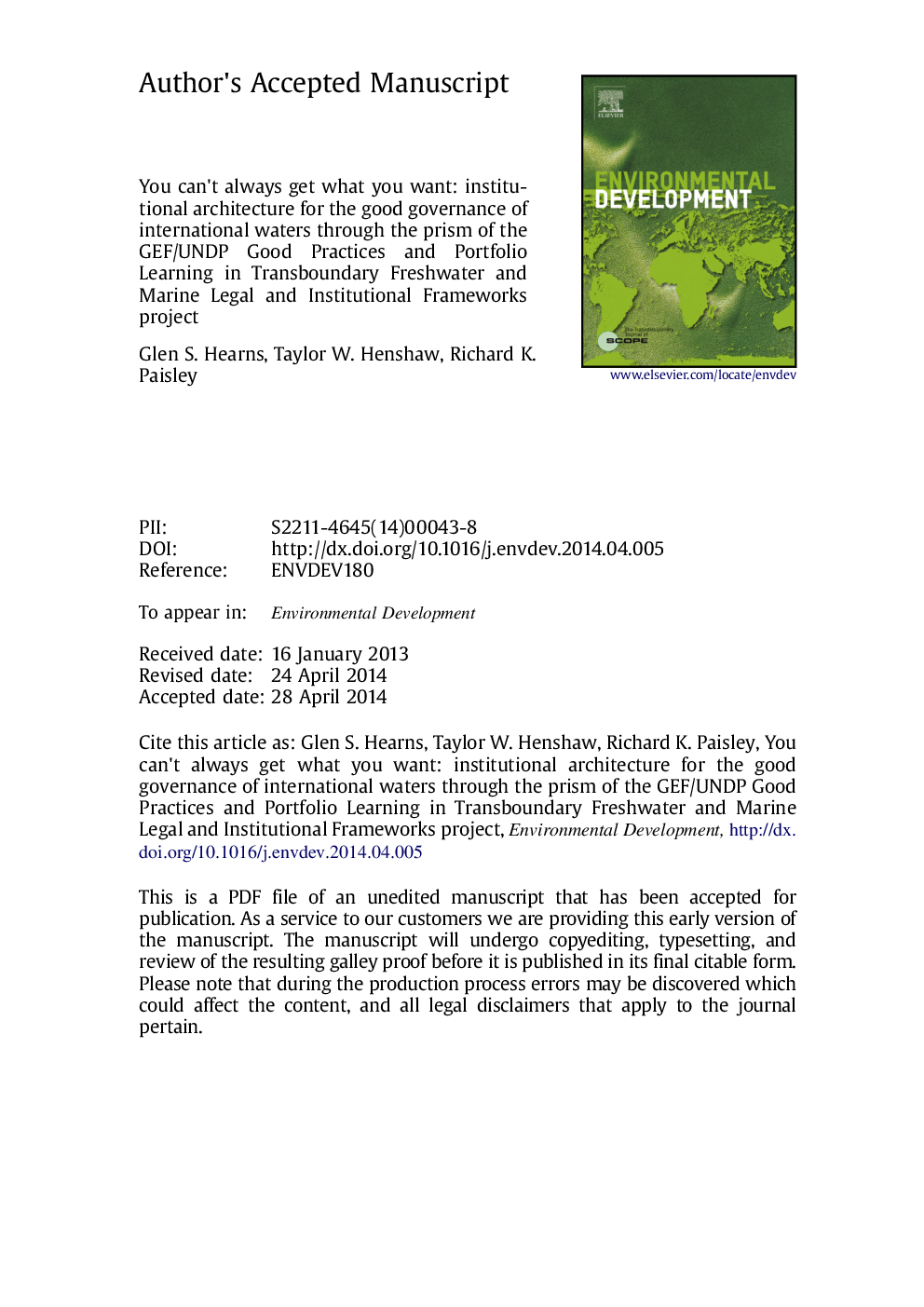| Article ID | Journal | Published Year | Pages | File Type |
|---|---|---|---|---|
| 6302917 | Environmental Development | 2014 | 14 Pages |
Abstract
Establishing and maintaining institutions that address functional necessities are critically important for good governance of transboundary waters. Form should always follow function. Institutional architecture is particularly highly dependent on political, social, economic and ecological drivers. These often competing drivers create a plethora of governance challenges. A one-size-fits-all approach to institutional architecture is neither desirable nor possible in the governance of transboundary waters. Drawing on lessons and experiences from the GEF/UNDP Good Practices and Portfolio Learning in Transboundary Freshwater and Marine Legal and Institutional Frameworks Project, this paper identifies various challenges associated with establishing and maintaining effective transboundary waters governance arrangements. This paper also identifies particular institutional architecture concepts that stakeholders and sovereigns should consider when designing governance institutions, which focus on how to balance incentives, reduce uncertainty, increase confidence and reduce costs. Further research and analysis is needed to identify more specific institutional architectures that are likely to lead to collaborative solutions to common problems in transboundary waters management. However, some preliminary observations and conclusions are presented.
Related Topics
Life Sciences
Environmental Science
Ecology
Authors
Glen S. Hearns, Taylor W. Henshaw, Richard K. Paisley,
